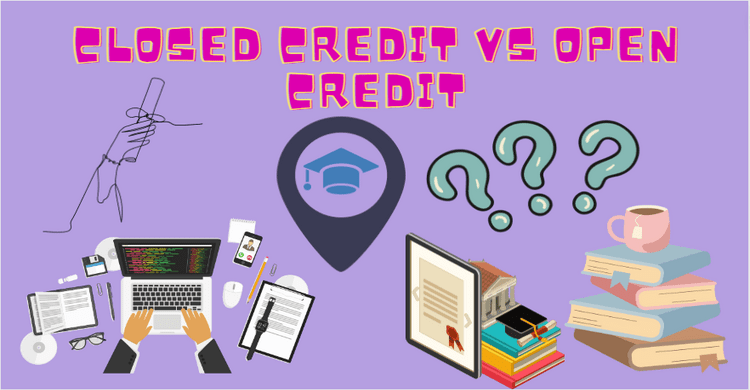One important thing to think about is whether you want to enroll in an open or closed credit system at Bangladeshi universities. Although all Bangladeshi universities use the same credit hour system for bachelor’s degrees, it’s important to keep in mind that certain private colleges may arrange their course offerings differently. Prospective students should do their research before choosing a university because this distinction may have a big influence on their academic career.
Open Credit System:
Students can choose which courses to take in a particular semester and can combine courses from different academic years under the open credit system.
Students can tailor their education to suit their interests and tastes owing to the abundance of possibilities accessible with this approach.
However, there are some disadvantages to this independence as well, such as the need for careful planning to ensure on-time graduation and potential difficulties obtaining preferred courses.
Pros of the Open Credit System:
- Students can select subjects that fit with their objectives and areas of interest.
- A wider range of subjects can be explored with this approach, including elective or optional courses.
- Students can mix courses from different years or levels in the same semester, enhancing their academic experience.
- The ability to take courses outside their major encourages students to pursue personal interests.
Cons of the Open Credit System:
- High demand and limited seat availability can make it challenging to secure preferred or pre-advised courses.
- The absence of a predefined structure and guidance may result in delays in graduation if not planned effectively.
- Students may enroll in courses without completing the necessary prerequisites, affecting their understanding and performance.
- Constantly changing schedules and courses can make it difficult to maintain friendships.
- As the number of enrolled students increases, personalized advising may be less accessible.
Closed Credit System:
The closed credit system follows a more planned and organized methodology. Every year or semester, the department or institute decides which courses the students will take, along with the selection of teachers, days, and times. Although this approach saves time and effort when evaluating possibilities, it could restrict students’ ability to choose their courses and encourage them to adhere to the same institutional restrictions.
Pros of the Closed Credit System:
- A clear structure and predetermined course selection streamline the decision-making process.
- All students operate within the same institutional constraints, ensuring equitable opportunities and outcomes.
- The institution’s delivery of a mandatory curriculum benefits all students if performed effectively.
Cons of the Closed Credit System:
- There is limited freedom in course selection, as the department or institute dictates courses, instructors, and time slots.
- The closed system offers fewer opportunities to explore diverse subjects or undertake optional courses.
- Students might find themselves stuck with the same group of classmates, making it difficult to form new friendships.
In conclusion, your preferences and objectives will ultimately determine whether you choose an open or closed credit system. Each system has its own set of drawbacks as well as benefits. You should base your choice on your degree of desired flexibility in choosing courses as well as your aptitude for handling the system. This decision will have a big influence on your university experience in Bangladesh, so think it through thoroughly before starting your studies.
To read more blogs, click here
Writer,
Sumaiya Islam Sonali
Intern, Content Writing Department
YSSE

